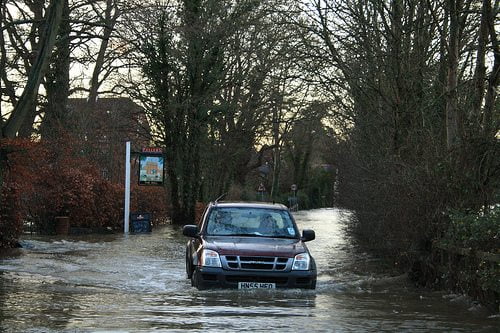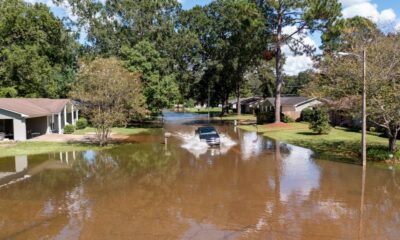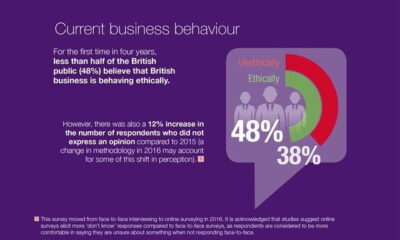

Economy
Winter Flooding: Nearly 250 Million of Damage Caused to Roads and Bridges
Nearly £250 million in damage was caused to key infrastructure like roads, bridges, public rights of way, and drainage systems by this winter’s flooding, new research reveals.
A snapshot analysis by the Local Government Association (LGA), published three months on from the flooding, estimates local authorities have so far been landed with this huge bill after the devastation wreaked by storms Desmond and Eva.
The LGA, which represents more than 370 councils in England and Wales, warns the final bill to councils could be much higher as local authorities are still assessing the full cost.
Worst hit have been Cumbria, which sustained about £175 million in damage, Calderdale with £33 million, Northumberland with £24 million and Lancashire £5 million.
Government funding has been important in enabling local authorities and their communities to recover from the winter’s flooding havoc. However, the LGA warns councils will need more financial help from the Government as the full cost of the damage emerges.
New flood defence funding should also be devolved by government to local areas, with councils working with communities and businesses to ensure money is directed towards projects that best reflect local needs.
Staff have worked tirelessly with volunteers and local community groups to help areas recover from the devastating and unprecedented flooding, keeping residents up to date with regular postings on their websites and through social media and special flood-watch apps. Councils have also visited flood-hit areas to collect household items such as carpets and furniture to dispose of them. So far, an average 1.66 tonnes of household goods and freezer waste has had to be removed from each of the 16,500 homes and businesses that have been flooded, the LGA estimates.
Local authorities have so far been landed with a bill of more than £2.25 million in landfill tax as a result. Councils are calling for all landfill tax, which is calculated at just over £82 per tonne, to be returned to local taxpayers and invested back in to projects that will support local jobs and growth, rather than go to the Treasury.
Cllr Peter Box, Chair of the LGA’s Environment, Economy, Housing and Transport Board, said:
“The devastation wreaked by this winter’s flooding has landed councils with a bill of nearly £250 million – just for damage to key infrastructure like roads and bridges. Councils are still literally counting the cost and the final bill is likely to be much higher. Government has gone a long way to helping hard-hit communities get back on their feet. But it is clear more financial support will be needed for councils.
“Other measures from government could also make a massive difference in helping councils. These include allowing them to keep landfill tax and devolving new flood defence funding to local areas.
“Councils continue to give their all for flood-hit areas. The sense of community spirit across the country and huge efforts of council staff who have worked long hours and with little rest has been inspirational.
“Even now, council staff are still preparing for the possibility of further severe storms to ensure the safety of residents, homes and businesses, shore up flood defences, and protect road networks and power supplies as much as possible.
“People should continue to keep an eye on council websites and social media feeds for updates on the situation in their local areas.”






























